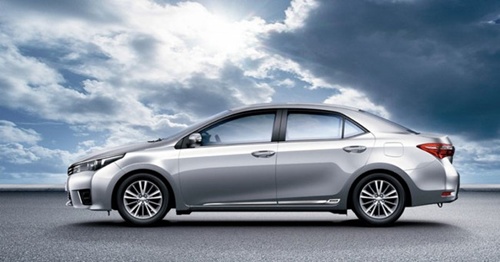TMV remains undecided on continuing local assembly
 |
| A new version of Toyota Corrola Altis 2014. It is one of the most favourable model in Viet Nam. Photo autopro.com.vn |
Speaking at a press conference held in Ha Noi on April 2, General Director of TMV Yoshihisa Maruta said his company had not yet decided on this issue. The corporation must make a decision this year because it takes three years of preparation to manufacture these cars.
Maruta, who is also Chairman of the Vietnam Automobile Manufacturers' Association (VAMA), explained that the imported completed built units would be cheaper than the imported completed knocked-down units. Therefore, the drop in the import tax to zero per cent for ASEAN countries by 2018 was a major issue. TMV as well as the VAMA members all had to decide whether they will continue to assemble cars locally or import them in 2018.
The Government last year approved a master strategy for the automobile industry's development by 2020, with a vision toward 2030. However, the strategy did not include a concrete development plan for businesses, so automakers are still waiting for concrete policies to be put in place.
The TMV leader said if the relevant agencies had no concrete action plan, his firm and other VAMA members would face difficulties.
He named Hyundai, a famous brand from South Korea, as an example. Despite hopes that the firm would invest in production in Viet Nam, its management decided to develop a production facility in Malaysia last year instead. Accordingly, most of the firm's 2014 models that are being sold in Thailand and Viet Nam were manufactured and assembled in Malaysia. This move was aimed at supplying cars to customers at more reasonable prices than those being imported directly from South Korea.
Maruta said this example showed that the country's greatest challenge, leading to a lack of competition, was that it had failed to develop a support industry.
Domestic automakers' rate of producing spare parts is very low, serving only 10 to 30 per cent of the production. Most of the spare parts produced in Viet Nam are very basic and have little value.
Meanwhile, sedans from Toyota, Ford, Mazda and Honda have grabbed a significant share of the domestic market. Almost all of these automakers have at least one manufacturing plant in Thailand or Indonesia, or in both countries.
To attract automakers to invest in Viet Nam as much as they do in Thailand and Indonesia, Viet Nam must have a large auto market in place with a developed support industry.
Although they are faced with such difficulties, TMV has targeted production of 41,000 units this year, an increase of 18 per cent compared with that of last year. The firm expects to sell 46,000 cars, including many new models, 13 per cent more than it sold the year before.
Last year, the firm invested US$19 million in new car projects and production lines, introducing new models such as Vios, Altis and Yaris to the market. More than 41,200 cars were sold in 2014, an increase of 24 per cent over last year, allowing it to occupy 31 per cent of the local market share among VAMA members.
What the stars mean:
★ Poor ★ ★ Promising ★★★ Good ★★★★ Very good ★★★★★ Exceptional
Latest News
More News
- The generics industry: unlocking new growth drivers (February 04, 2026 | 17:39)
- Vietnam ready to increase purchases of US goods (February 04, 2026 | 15:55)
- Steel industry faces challenges in 2026 (February 03, 2026 | 17:20)
- State corporations poised to drive 2026 growth (February 03, 2026 | 13:58)
- Why high-tech talent will define Vietnam’s growth (February 02, 2026 | 10:47)
- FMCG resilience amid varying storms (February 02, 2026 | 10:00)
- Customs reforms strengthen business confidence, support trade growth (February 01, 2026 | 08:20)
- Vietnam and US to launch sixth trade negotiation round (January 30, 2026 | 15:19)
- Digital publishing emerges as key growth driver in Vietnam (January 30, 2026 | 10:59)
- EVN signs key contract for Tri An hydropower expansion (January 30, 2026 | 10:57)
















 Mobile Version
Mobile Version